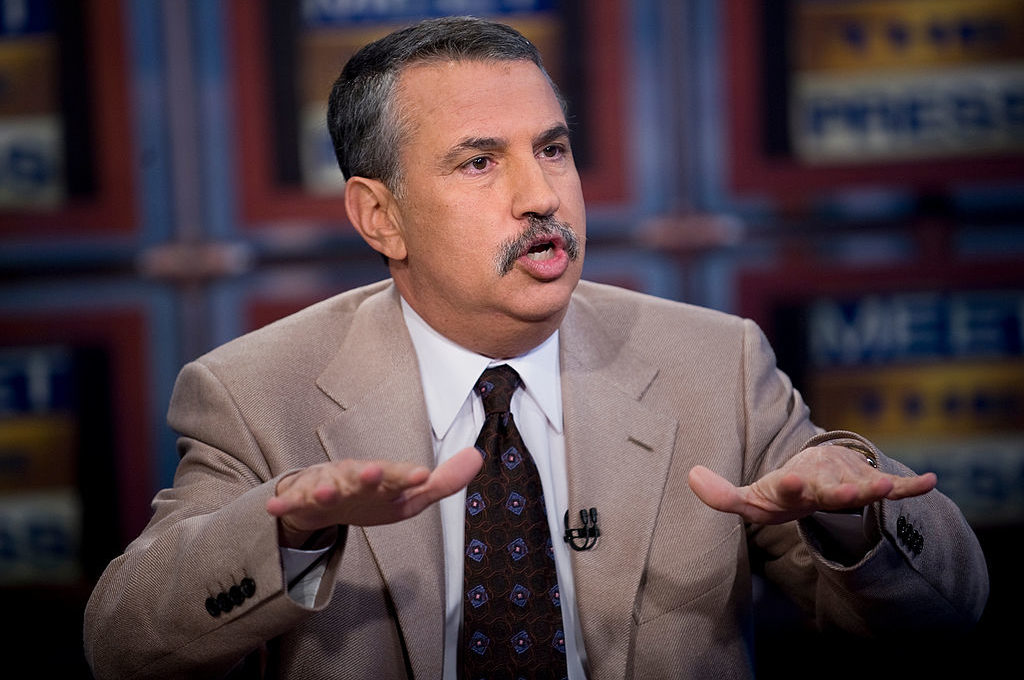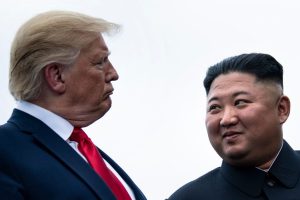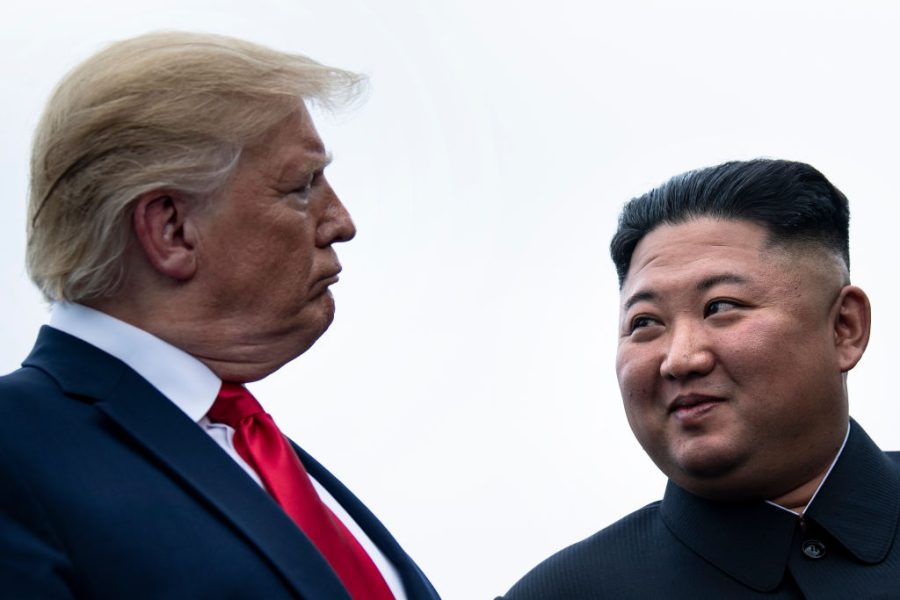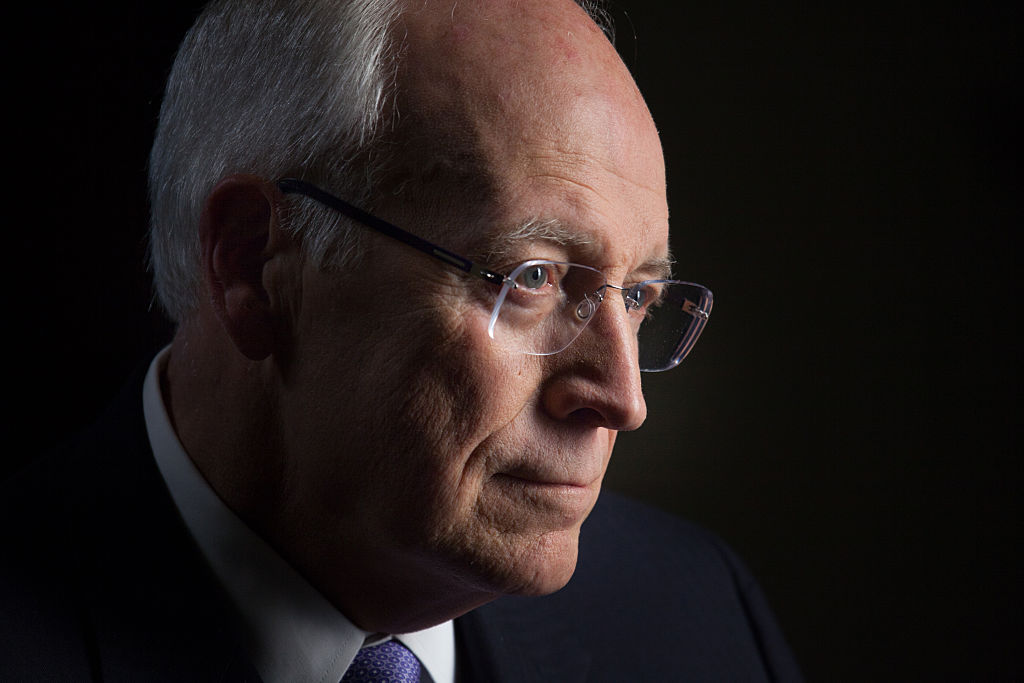Let’s say that two decades ago you were wondering where to invest your savings for retirement and the money that was supposed to pay for your kids’ college years, and decided to consult with your financial adviser known to be a market wizard. Let’s call him Tom Friedman.
‘Don’t pay attention to all the bullish talk about Steve Jobs and Apple’, Friedman said. ‘I would bet all my money on two of the market’s crown jewels, Alta Vista and Enron’.
Well, to make a very long story short, you are now spending your retirement years in a trailer park in Nevada, while your son is dealing drugs and your daughter works for an escort service to pay for their college studies.
So let’s imagine that one day Friedman shows up knocking on your trailer door without even a ‘sorry’ for all the mess he got you in. He now maintains that he has a winning strategy to get you out of your financial troubles. Would you then invite him in and wait with anticipation to hear what he has to say? Or would you kick out a guy who seems to give chutzpah a bad name?
In a way, in the universe of the Economic Man, the price signal allows us to make cost-effective decisions and sort out winners and losers very quickly. This ensures that a product that doesn’t work is removed from the store shelves, an executive who has bet the company’s money into bankruptcy is shown his way to the door, and a financial advisor who has constantly failed his clients is driving a cab next year.
But in the world of the Political Man, things tend to work differently. The marketplace operates without interruption while elections take place once in a few years, not everyone votes in them, and those who do cannot always figure out how the products, aka policies, that they approve or reject affect them directly.
And while most voters have some basic understanding of policies close to home, like education and healthcare, issues like foreign policy and national security, or for that matter international trade, are too complex and esoteric for those who don’t have the required training — not to mention time — to understand them. Voters may end up buying into the leader’s excuse that we lost a military conflict because we were stabbed in the back by those who didn’t want us to win — and then reelect that same leader.
Could we even imagine a bankrupt company, let’s call it Afghanistan Occupation Corporation, that survived for 20 years as its chief executives again and again repeated the same mistakes only to see their salaries zoom into the stratosphere? No one is fired and in fact more employees are hired?
In theory, you could make the argument that the fact that both Barack Obama and Donald Trump won their respective parties’ presidential nominations bashing US military adventures in the Middle East and defeating the candidates who had supported those failed endeavors suggests that at some point voters were able to make some difference. At least they tried.
But then voters have no power to directly affect the way that permanent government, aka the Deep State, operates. They can’t choose the generals, spooks and many adjunct players that are part of the national security state, or for that matter, its cheerleaders in the mainstream media — who like the Energizer Bunny keep going and going.
It’s not polite to pile on fellow journalists. Since this is not a research paper, I am not going to provide juicy quotes from articles and columns authored by reporters and pundits — some of whom were awarded Pulitzer Prizes — who had promised that we were about to win the Iraq war any day now. Just wait and see. Victory is around the corner!
Those are the same journalists who celebrated our mission of ousting dictators and bringing democracy to and remaking the Greater Middle East, and who told us how having elections there would turn Iraq, Afghanistan, Palestine and Libya into functioning liberal, stable and peaceful republics. They also tried to get us involved in the civil war in Syria, this time without any success. Thank God (or those voters who elected Obama and Trump) for small mercies.
And let us not forget the ecstasy that took hold of those reporting from Tahrir Square in Cairo during the so-called Arab Spring, who predicted that all those English-speaking and internet-using students were going to establish a Jeffersonian democracy on the Nile. Just like what happened on the shores of the Euphrates or in the West Bank.
Most of these media people are still with us. Recently they’ve been explaining why we should remain in Afghanistan.
Some of the reasonable tactical critiques of the US withdrawal from that country have often ‘been woven together with anti-withdrawal arguments that are self-deceiving, dubious or risible’, columnist Ross Douthat put it in the New York Times. He pointed to arguments that ‘the situation in Afghanistan was reasonably stable and the war’s death toll negligible’ before the Trump administration started moving toward withdrawal or ‘that an indefinite occupation was morally necessary to nurture the shoots of Afghan liberalism’.
Indeed, like our imaginary financial adviser Tom Friedman, they seem to be trying to sell us once on the same failed foreign policy prescriptions and strategic products that brought us the Iraq and Afghanistan quagmires. Like him, they give chutzpah a bad name. But unfortunately we are not able to kick them out the door.

























